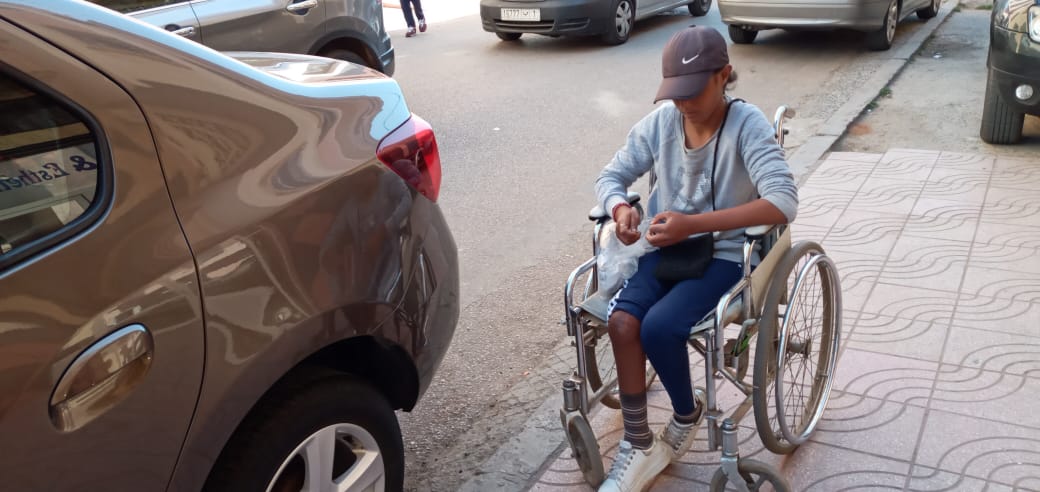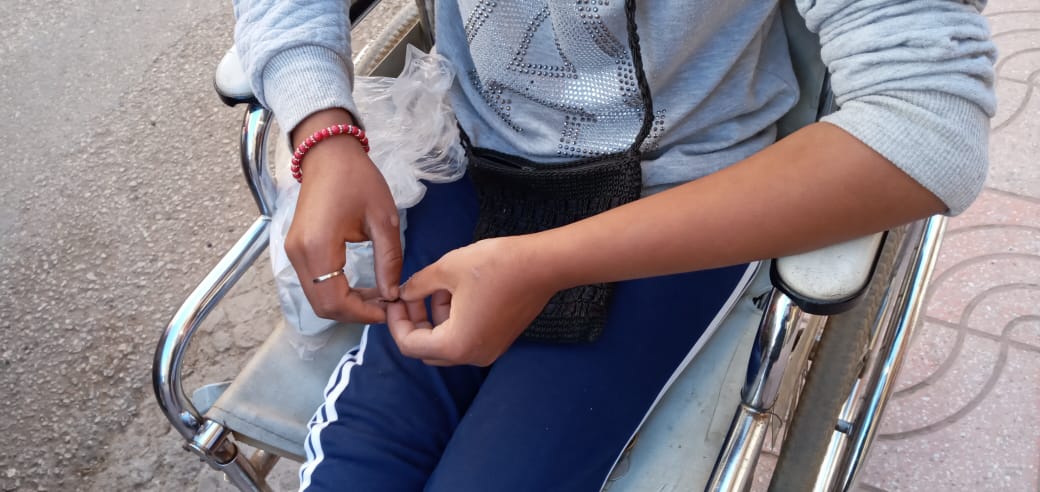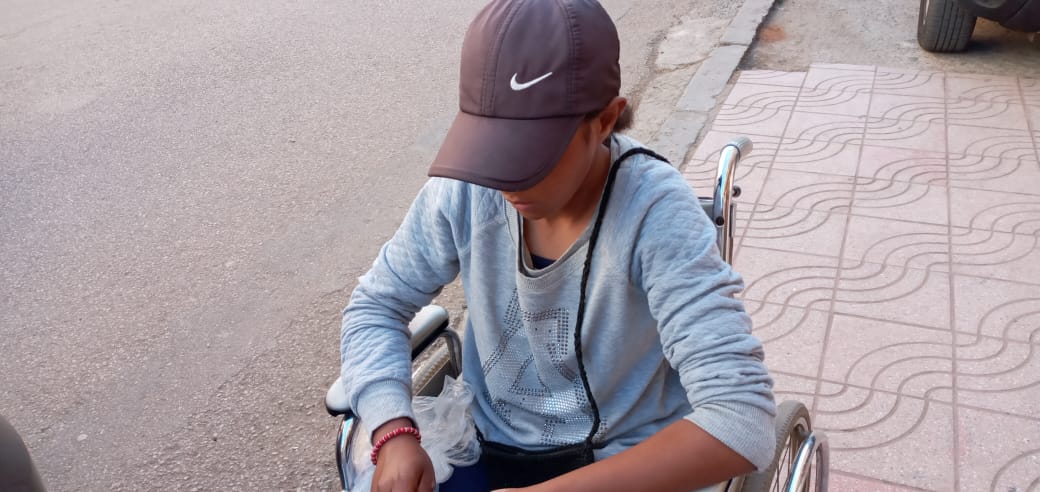An accident that has changed her life: A Moroccan child on a wheelchair

By: Magida Ait Laktawi
She struggles to move the wheels of her wheelchair and get close to the cars stopping at a traffic light.
Her black, sad-looking face is hardly seen across the vehicle window as she begs people for some dirhams to help her family, which consists of five other younger children and jobless parents.
Noha was only twelve years old but the sad look on her face foretells what she has gone through in the past few years making her a girl with much older experiences.
The crippled girl coughs severely as the vehicles set off leaving a dark cloud of exhaust behind them. She then leaves to the roadside and waits for the coming cars to stop. A lady gave her advice saying, “Get off the road so a car won’t hit you.”
The catastrophe took place on the street

It was a traffic accident that turned Noha’s life upside down. She recalled what happened years ago saying, “I was very young when a taxi hit me and the driver ran away. The people called on my mom and I was rushed to the hospital for treatment of a severe injury to my knees.”
Due to the poverty of her family, the injury of the little girl was not treated well and soon she was back to normal childhood life with its noise and energy. However, after a while, the little girl started to suffer severe pain and shortly afterward a slight limp. However, her condition worsened as the little girl found it too difficult to move and remained in bed for several months.
Noha would touch her swollen kee with her hand and feel the marks left on the skin from a surgery she had undergone. The operation fees were provided by charitable citizens but unfortunately, the child could not complete her treatment or physical therapy and was never able to stand on her feet again.
“It is my late grandmother’s wheelchair. It helps me go out and beg around to assist my mother and my little brothers. I am the oldest of them and my parents are jobless. I do this to support my family and pay the rent of the room in which we live in one of the quarters of Sala city,” Noha told Tiny Hand.
Unenforced laws!

Last November, Jamila Al-Mousali, Minister of Solidarity, Social Development, Equality, and Family brought together senior security and social solidarity officials to discuss the growing phenomenon of begging or begging children in the Moroccan streets.
The minister and the Chief Public Prosecutor of the Kingdom of Morocco and the King’s Attorney-General, Mohamed Abdel Nabawi agreed on an action plan to protect children from exploitation in begging. The plan focuses on enhancing the protection of children from such type of exploitation.
Abdelali Al-Rami, head of the Assembly of the Childhood Forum Association in Morocco, told Tiny Hand that the begging phenomenon in Morocco has become very alarming as it is becoming more common despite the national measures and programs initiated by the authorities.
“It’s shameful that some parents would exploit their children in begging, something that led to a shocking figure of child beggars across the major cities such as Rabat, Sala, and Casablanca,” he said.
Al-Rami called for the protection of those children who are being exploited by their family members, either by taking them to the streets to beg around or by hiring them to other beggars. Those children are often exposed to a range of risks such as sexual exploitation, physical and psychological abuse, and drug addiction.
The social activist advocating children’s rights called on the Moroccan officials to criminalize begging practices across Morocco and strictly enforce the laws.
Returning to Noha, the bone of her right leg suffered caries and became shorter than the left leg. She now needs to undergo another surgery that would bring her little dream of walking and running on her feet like other children to reality.
“I want to stand on my feet and work to help my mother and my brothers. As for going to school, I have no idea about it,” Noha said with a broken, sad voice.
Related Posts
Surviving war in Damascus
In the heart of Old Damascus,, where life is marked by challenges and hardships, lives Maya. At just 14 years old, she carries burdens far beyond her years. Surviving war in Damascus Maya's Journey: Becoming the Strength of My Family Through Collecting Cardboard Enter keywords…
March 10, 2025Tiny Hands, Heavy Burdens: A Child’s Life on the Construction Site
At five in the morning, we met Issa in his modest, rural home in al-Karamah area of the Raqqa countryside. The early breeze bit into our faces as Issa finished breakfast with his brothers and father. Dressed in a red shirt, he had pulled on a light cotton jacket to shield himself from the morning chill….
March 10, 2025


